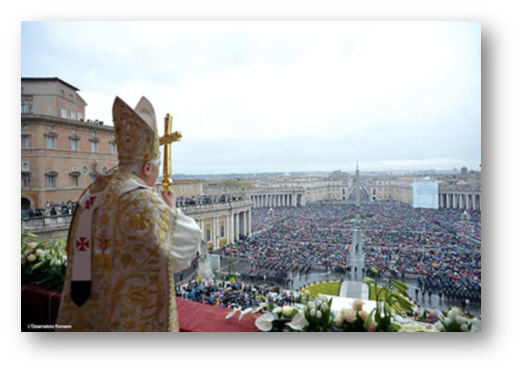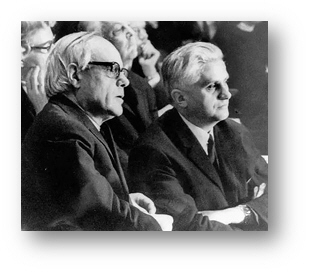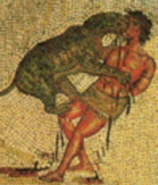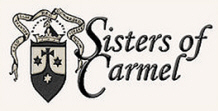The Greatest Pope that should have Been

Pope
Benedict died this morning at 9:34 A.M (CET) December 31st,
2022
Please pray for him in the
Communion of Saints in which we, as Catholics, live our
lives in Christ.
Pope Benedict was undoubtedly one of the great intellects
and luminaries of our age — a brilliant mind only exceeded
by his genuine humility. He embraced all his children
... in stark contrast to Francis who embraces only those
who find favor with him, who share his ... ideology.
In this sense Pope Benedict XVI was a father to all his
spiritual children. Gentle, kind, and courteous in a way
foreign to this age; in this respect he was an exemplar
to all of us.
This is not to say that his pontificate was flawless. On
the one hand, he gave us the motus proprio
Summorum Pontificum
that restored to us the Mass of the Ages as it had been
celebrated in Latin for 2000 years. That it had been
torn from us in a fiat by Pope Paul VI and Vatican II
was, in our estimation, tantamount to ecclesiastical suicide;
if not, then at the very least a criminal and sectarian
coup by Modernists.
Summorum Pontificum
Restoring what had been illegitimately taken from us
was an act of justice. That it would later be torn
from us yet again by Bergoglio (Francis) was
an unconscionable act of pontifical pillage. It was unjust
and remains unjust. But after the madness and the almost
universal desecration of all things historically and intrinsically
Catholic, it was for a brief time the restoration of sanity
to the Mass. And how it thrived! But this was to the consternation
of Francis ... who famously argued that his predecessors
had failed to vigorously implement the “effluence” (no,
not influence) of Vatican II, and that he alone “had
the humility and ambition to do so” — failing to recognize
that humility and ambition are not compatible.
The gift was great but not irrevocable.
What is more, Pope Benedict had fallen into the same ecumenical
nonsense that his predecessor, Pope John Paul II, had fallen
into on Oct. 27, 1986, as we witnessed, yet again, the pan-ecumenical
scandal in
Assisi on June 19, 2011.
Resignation
Two years later, we would be astounded to find that Pope
Benedict had tendered his resignation from the papacy on
February 11, 2013, and his subsequent — and never-before-conferred
title as “pope-emeritus” — was
both baffling and disheartening for many, many Catholics.
To further confuse the faithful, he was still addressed
as “Your Holiness,” the title reserved for a reigning pontiff.
For the first time is history since the Avignon papacy
and the Great Western Schism in the 14th century
when there were two claimants to the papacy, we apparently
had two popes living in Rome. The confusion and disappointment
was compounded each year — for 10 years — by Benedict’s
remaining a “pope-emeritus;” time he could have spent
correcting the wayward course of the Church instead of abandoning
it (and her children) to what he surely must have known
would be a Modernist successor. And when that successor
— Francis —emerged from the shadows of the dark logia there
was, according to more than a few who witnessed it, an almost
instinctual aversion to what appeared.
After many, many, episodes in which Francis found himself
contradicting historical Church teaching — and Holy Scripture
— and subsequently bringing scandal upon the Church, Benedict
apparently did nothing to correct him; something many had
seen as a dereliction of duty, especially in light of Saint
Paul’s example in correcting Saint Peter when he failed
to be forthright, and temporized with the Jews in Jerusalem
1. The only other pope
in history to voluntarily abdicate the Seat of Saint Peter
was Pope Celestine V in 1294, over 700 years ago. In a word,
it was unthinkable —and apart from Pope Celestine, unheard
of.
Many see it, in some sense, as “Throwing the Church to the
Lions” when she was most in need of defending. Pope Benedict
certainly had the mental acuity, and, as we have seen, the
physical stamina required by a Defensor Fidei (a
Defender oif the Faith) but for reasons unknown to us, chose
drop the sword and leave the arena.
Francis and Fixation, the denouement
That his reckless successor (Francis/Jorge Bergoglio)
deliberately disdains to be called “the Vicar of Christ”
— or even the “Patriarch of the West,” says much about the
concept of the “hermeneutic of continuity” so often bandied
about in today’s post-Modern Church. Instead, Jorge chose
to be listed merely as “the bishop of Rome” (in what Cardinal
Gerhard Müller, called an act of “theological barbarism.)”
in what is known as the Annuario Pontificio, as
Catholic Culture points out. He eschews every identifiably
Catholic title attached to all his predecessors, including
“Successor of the Prince of the Apostles, Supreme Pontiff
of the Universal Church, Primate of Italy, Archbishop and
Metropolitan of the Roman province, Sovereign of the Vatican
City-State.” Why such a disdainful break with the pontifical
history of the 265 popes before him? The Vatican’s explanation
is entirely in keeping with the present papacy, and the
four papacies that preceded it? In their words, doing so
“could prove useful to ecumenical dialogue.” The
much-vaunted notion of the concept of the “hermeneutic of
continuity” (which purportedly connects the Church present
with the Church past — and failed to do so) is, apparently,
no longer in favor. “The pope? Oh, you mean the guy down
the street?” It has become barbaric, indeed.
It may have been otherwise for the Church, but God in His
inscrutable wisdom — which does, in fact, exceed our understanding
— in His permissive will has allowed this. Even from a merely
human perspective, we are deserving of Francis, a man after
our own hearts and minds, ever cleaving more closely to
the world ... and other things. We wanted holiness without
sacrifice, a god conformed to our image and articulated
in terms of the lowest common denominator — terms equally
accessible to children and adults with cognitive impairment.
We have dumbed down even Dumb. We wanted to sit in the pews
with our arms lazily draped over the the back of the pew
(or perhaps stroking the back of a loved one) as though
only tolerating what was otherwise extraordinarily
stupefying — because it was. We wanted to wear our athletic
uniforms, our team-shirts, our shorts and “distressed” (torn-to-the-flesh)
jeans to Mass because, after all, we are not there for God,
but God is there for us ... and only at our leisure.
All this was a direct consequence of the perilous course
that Vatican II would subsequently take; a course for which
— in collaboration with the dissident theologians Rahner,
Küng, Schillebeeckx, and de Lubac — then Father Ratzinger
was also responsible as an influential and “progressive”
Peritus, or Theological Consultant. Often in a business
suit and tie, in many ways he embodied the Nouvelle Theologie
(new theology) together with the failed project, Ressourcement
(“a return to the sources”) then in vogue, which attempted
to “invigorate” what all five theologians saw as a stale
Church in need of “updating”.
The Peritus as (Mr.) Ratzinger, Vatican
II

(Fr.) Ratzinger and Dissident Theologian (Fr.) Karl Rahner
On the other hand, it was
also entirely consistent with Benedict’s own contribution
to the replacement of the Latin Mass during Vatican
II. This may come as a surprise to many who saw in Pope
Benedict a champion of the “Tridentine Mass” and Tradition.
Regrettably, he was not. Indeed, in 1967 Ratzinger
wrote the following in his volume Problemi e risultati
del Concilio Vaticano II in the Journal of Italian Theology:
2
-
“Additions
[to the liturgy] of the late Middle Ages
… was linked to a set authority, which worked
in a strictly bureaucratic way, lacking
any historic vision and considering the
problem of the liturgy from the sole viewpoint
of rubrics and ceremonies, like a problem
of etiquette in a saint's court, so
to speak.”
-
“There
was a complete archeologization of the liturgy,
which from the state of a living history
was changed into that of pure conservation
and, therefore, condemned to an internal
death. Liturgy became once and forever a
closed construction, firmly petrified.
The more it was concerned about the integrity
of pre-existent formulas, the more it lost
its connection to concrete devotions.”
-
“The solemn
baroque mass, through the splendor of the
orchestra's performance, became a kind
of sacred opera, in which the songs of the
priest had their role as did the alternating
recitals. .... On the ordinary days
that did not allow such a performance,
devotions that followed the people's mentality
were often added to the mass.”
|
By the time he became pope, however, and well into the aftermath
of Vatican II, he apparently glimpsed the devastation it
wrought — but by then the horse was already out of the barn;
indeed, as we have recounted, he had been instrumental,
much earlier, in building the barn and opening the door.
In many ways, Joseph Ratzinger was the surpassing and ultimately
heroic pope ... that should have been.
Requiem aeternam
dona ei Domine, et lux perpetua luceat ei.
Amen
Editor
Boston Catholic Journal
 Printable
PDF Version
Printable
PDF Version
Comments? Write us:
editor@boston-catholic-journal.com
________________________
1 Galatians.
2.11-15
2
https://www.queriniana.it/libro/problemi-e-risultati-del-concilio-vaticano-ii-1792
Our grateful acknowledgement to
Tradition in Action for the translation into English
(https://traditioninaction.org/ProgressivistDoc/A_068_RatzMass.htm)
























